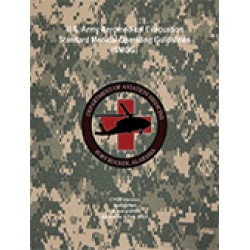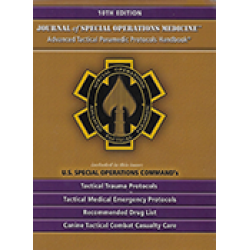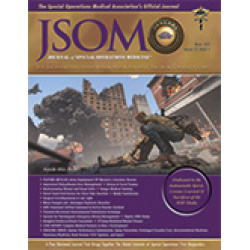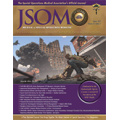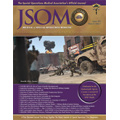Military Medical Evacuation After the Benghazi Embassy Attack: Implications for Military Support of Diplomatic Missions
Tekmal S, Lockett C, Long B, Schauer SG 22(4). 83 - 86 (Journal Article)
Background: The Department of State has the primary responsibility of diplomatic operations in foreign countries. The US military often supports these missions and, when needed, may be called upon to provide security in the event of changes in the host nation's government stability. The US military was requested to help evacuate the consulate in Benghazi after the attack on September 11, 2012. The medical requirements to support such a mission remain unclear, and data are lacking. We sought to describe the medical care required during this evacuation mission. Methods: This is a secondary analysis of a previously described dataset from the United States Transportation Command (TRANSCOM) Regulating Command & Control and Evacuation System (TRAC2ES) from 2008 to 2018, with a focus on cases involving the evacuation after the Libyan consulate attack in September 2012. Within our dataset, we isolated all cases of evacuation from the attack on US government facilities in Benghazi. We describe the available data within TRAC2ES, including the free text information placed by the initiating medical personnel. Results: We identified three cases of evacuations within TRAC2ES associated with the Benghazi consulate attack. All cases were evacuated from host nation hospitals to Landstuhl Regional Medical Center (LRMC) by military aircraft under urgent status. Case 1 was an adult male injured by an undocumented mechanism. He was found to be in severe shock, received four units of blood prior to transport, and was intubated. Case 2 was an adult male injured by an undocumented mechanism. He had documented smoke inhalation injury and was found to be coughing up black sputum. Case 3 was an adult male injured by an undocumented mechanism. He had a compound radial fracture with an external fixator in place and subsequently developed compartment syndrome. He was intubated prior to transport. Conclusions: Our case series focuses on the unique aspects of military support of diplomatic missions in countries lacking a stable government-specifically, what transpired in Benghazi. Such events showcase areas of potential collaboration between the Department of State and the Department of Defense in coordinating medical evacuations for casualties sustained during diplomatic missions.


 English
English 